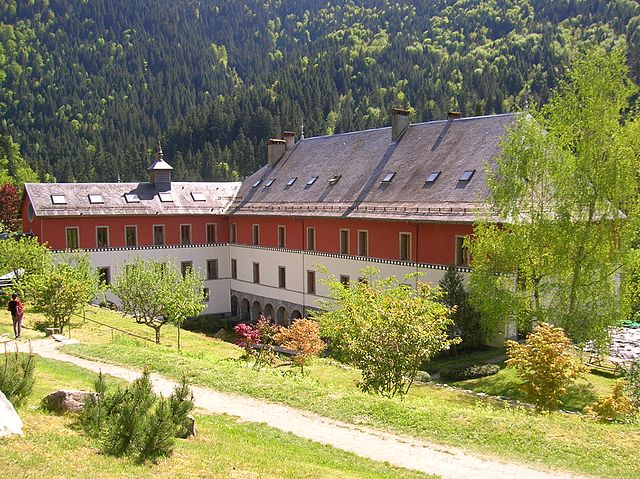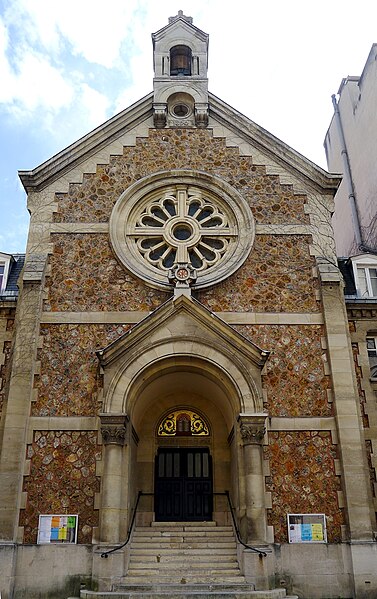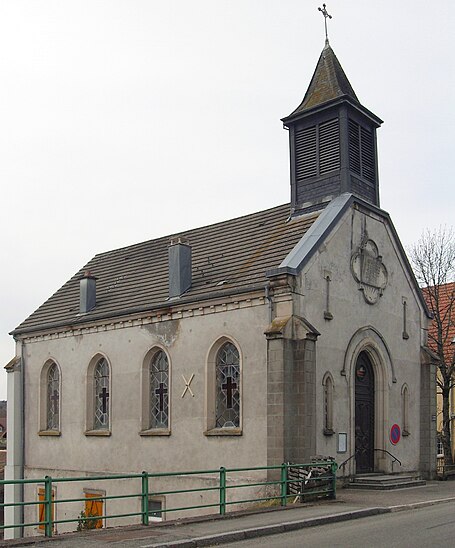The majority of the religious population in France identifies as Christian. Catholicism is the most prominent denomination in France, but has long lost the state religion status it held prior to the 1789 French Revolution and during various non-republican regimes of the 19th century, including the Restoration, the July Monarchy and the Second French Empire.
St. Gatianus' Cathedral in Tours.
A sculpture depicting the final judgement of sinners by Jesus at Amiens Cathedral, a World Heritage Site.
Saint Hugon in Arvillard, Savoie, is a former charterhouse (Carthusian monastery) turned into a monastery of the Tibetan schools of Buddhism (Karma Ling).
Many Catholic churches were turned into Temples of Reason during the Revolution, as recalled by this inscription on a church in Ivry-la-Bataille.
Protestantism in France has existed in its various forms, starting with Calvinism and Lutheranism since the Protestant Reformation. John Calvin was a Frenchman, as were numerous other Protestant Reformers including William Farel, Pierre Viret and Theodore Beza, who was Calvin's successor in Geneva. Peter Waldo was a merchant from Lyon, who founded a pre-Protestant group, the Waldensians. Martin Bucer was born a German in Alsace, which historically belonged to the Holy Roman Empire, but now belongs to France.
The Église réformée de l'Annonciation, Paris
The Lutheran church at Giromagny
"The Expulsion from La Rochelle of 300 Protestant families in November 1661"; by Jan Luyken
The Protestant psalter, 1817








